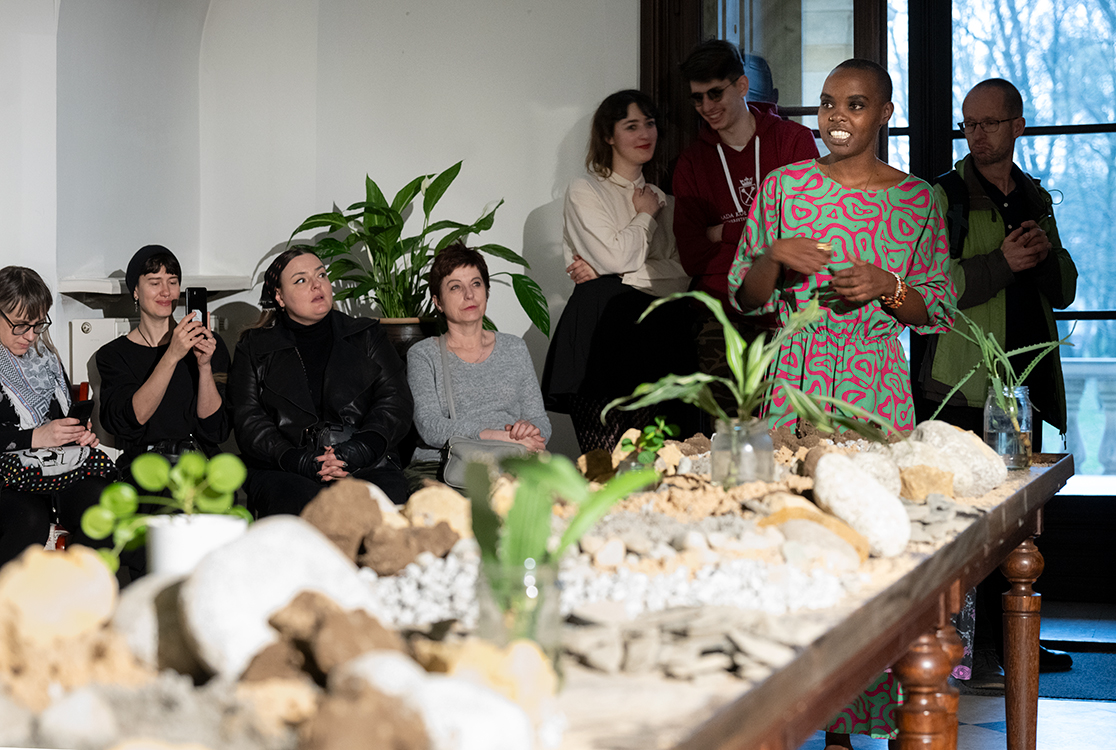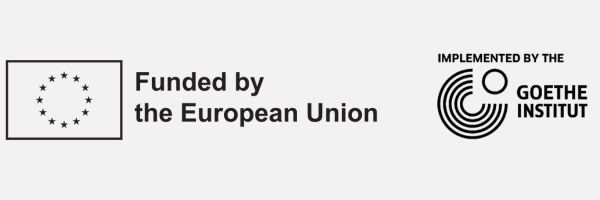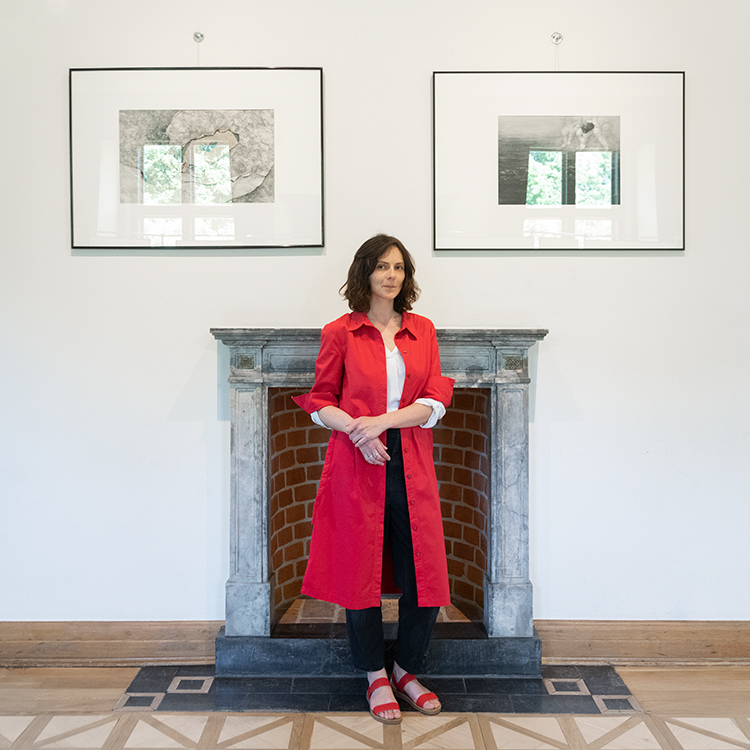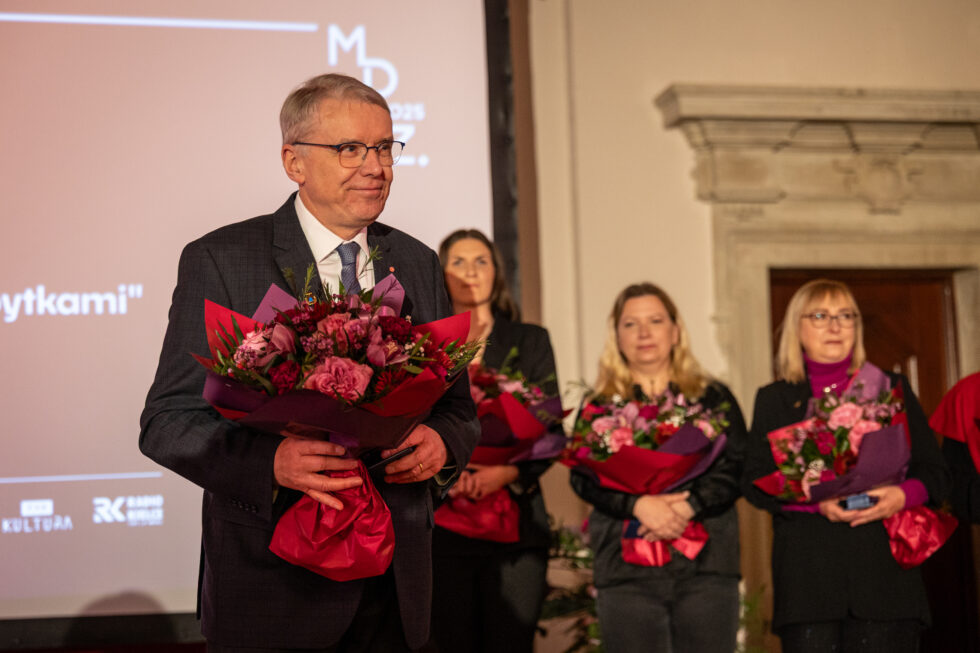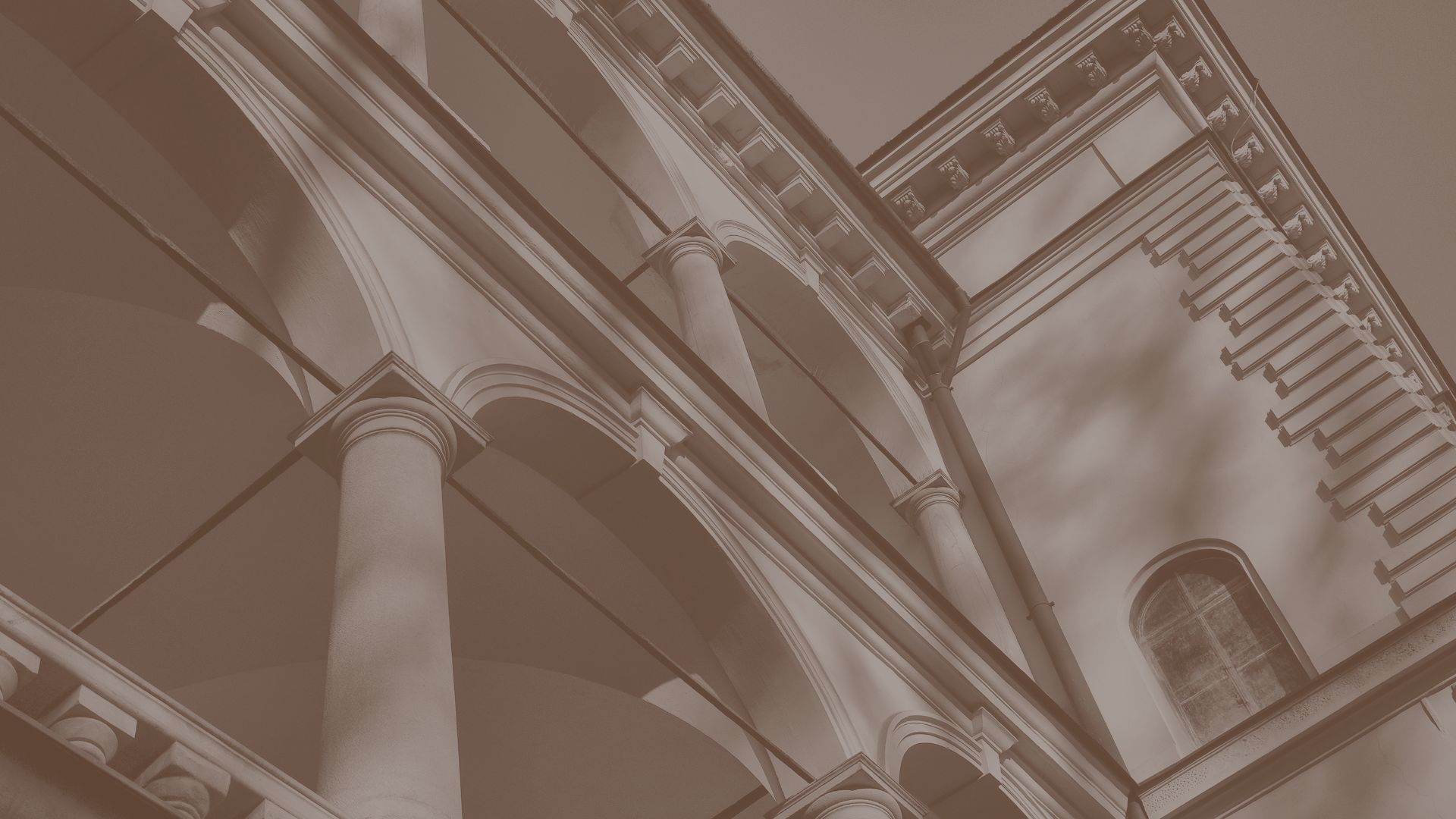We are pleased to inform you that last week the final events of the “Arts in Exile” residency project took place, during which three artists presented the results of their work to the public in Krakow at Villa Decius.
On March 30, we had the opportunity to see the performance “Minimum Decay” by Kenyan artist Ondiso Madete, in which she presented a three-part multisensory and interactive spectacle in dialogue with the space of Villa Decius. The theme of the performance was creating a connection with a place. Each part took place in a different space of the Villa and engaged the participants in a unique way — through the senses of touch, hearing, and sight. The first part focused on the bodily experience of memory: the artist invited the audience to sing together and connect with stones and earth, referring to the concept of “home.” The second part featured a video projection showing a subjective map of Krakow, seen through the eyes of a migrant woman, full of textures and sounds. The final stage was a poetic sound installation: the artist’s self-portraits complemented by texts and audio narratives that allowed the audience to enter the artist’s intimate world and experience her perspective through words and voice. The entire piece created a moving story about belonging, longing, and building a relationship with a place that is initially foreign but can become one’s own over time.
On March 30, there was also the presentation of the project “Some Paths Lead Somewhere” by Redina Qose, an Albanian multimedia artist who combines elements of installation, performance, video, and artistic weaving in her work. At Villa Decius, the artist presented a multi-element installation, with a handwoven five-meter-long carpet at its center — a symbolic road inspired by migration experiences, both personal and universal. The work was created during her residency in Krakow and represented both artistic reflection and an emotional processing of memories about movement, the search for belonging, and the redefining of the concept of “home.” The project also addressed the theme of community, the traces we leave behind, and the paths we follow — both real and imagined.
On April 1 and 7, two performances of “Who Wants My Land?” directed by Butrint Pasha — a director and playwright from Kosovo — took place. The performance, created specifically for the spaces of Villa Decius, tackled the theme of the war in Ukraine, focusing on the experience of loss, uprooting, and the struggle to preserve identity in the face of brutal conflict.
The performance engaged the audience directly, blurring the boundaries between the stage and the audience, creating an intense, multisensory experience. By combining elements of documentary theatre, poor theatre, and performance, it built a moving story about the suffering caused by war, while also raising questions about hope, community, and the possibility of forgiveness. The inspiration for the text came from interviews the playwright conducted with Ukrainian refugees in Bucharest and Krakow.
CAST:
Karolina Baster – VIRA
Jakub Ormaniec – LEV
Maria Poproch – IRYNA
Butrint Pasha – Director and Dramaturgy
Inka Budzianowska – Director’s Assistant
Ondiso Madete – Acoustics
Redina Qose – Set Design Elements
You can view the photo report from the events here: GALLERY
The project operator is the Villa Decius Association. The project is carried out as part of the Culture Moves Europe program financed by the European Union.
This work was produced with the financial assistance of the European Union. The views expressed herein can in no way be taken to reflect the official opinion of the European Union.
